Year in Review
The way we were in 2016
December 1st 2016
It’s been another year of challenges for the region’s airlines with mixed financial results, intensifying competition, unresolved airport and air traffic congestion and plenty of global uncertainty. Read More » It also has been a landmark 12 months when a long held industry goal of winning support for a global scheme for reducing emissions from aviation was achieved.
But there also was disquieting news. With Donald Trump as the president-elect of the United States, the Trans-Pacific Partnership (TPP), signed last February by 12 Pacific Rim nations excluding China, has been killed off. An Open Skies agreement between China and the U.S. is in a holding pattern, a trend considered by many in the industry to indicate a return to protectionism in U.S. aviation - at a time when demand from Asia-Pacific carriers to fly to the U.S. has never been greater.
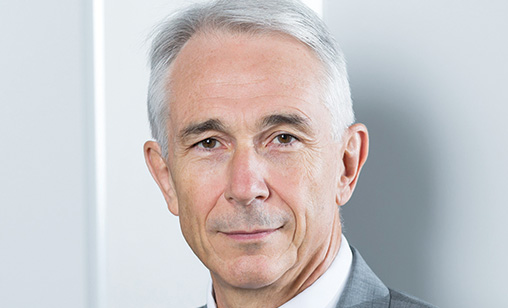 |
| Change of pace Tony Tyler steps down after his success at IATA |
 |
| Outstanding performance CEO Christopher Luxon and all "Air New Zealanders" |
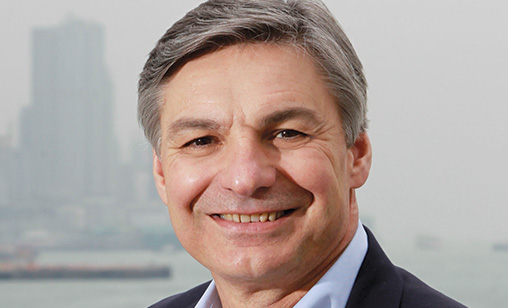 |
| An orderly transition Boeing vice chairman and Airplane unit boss, Ray Conner |
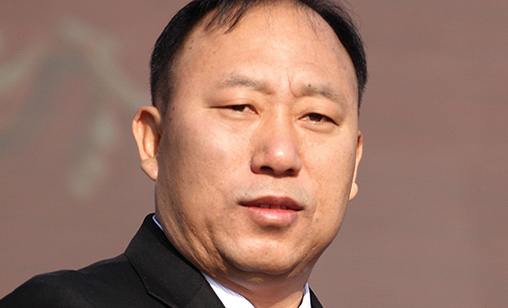 |
| Loves business Ruili Airlines chairman, Dong LeCheng |
 |
| Re-shaping Airbus Airbus CEO, Fabrice Brégier |
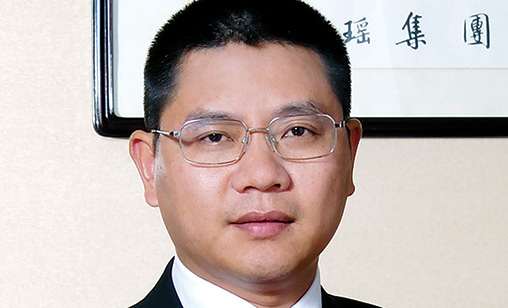 |
| Riding China’s growth Juneyao Airlines chairman, Wang Junjin |
Elsewhere, ASEAN Open Skies has been torturously negotiated to a solution that appears to suit most ASEAN airlines at least some of the time. At press time, Australia and China had agreed to a new Open Skies treaty that removed all capacity restrictions between airlines of both countries. Chinese airlines have inundated Australia with flights since the previous Sino-Australian Open Skies agreement was signed in January 2015. It is estimated that 200 million Mainland tourists will travel overseas by 2020.
The impact of Big Data, cyber security threats and rapid technological change were at the top of the 2016 risks list for airlines. In his landmark Lunch with Orient Aviation address in May, the chairman of Cathay Pacific Airlines, John Slosar, said airlines who are ignoring the importance of Big Data may not be in business in five years.
In Technology’s Threats in April in Orient Aviation, it was reported that cyber security insurance could cost the aviation industry up to $25 billion by 2025. Other mega disruption trends are geopolitical instability and regulatory uncertainty, digital vulnerability, complex operating models in an interconnected world and finding the people with the talent to manage and overcome these challenges.
Among the manufacturers competition was as fierce as ever for business in the world’s largest future aircraft sector, in a market where the traditional business models of both full service carriers and budget airlines are being challenged. Airbus introduced its latest A350 model, the -1000, in Toulouse in November and said it is committed to delivering the aircraft to its launch customer, testy Qatar Airways, on time in 2017.
Earlier in the year, Boeing said its B787-10 is ahead of schedule, delivery news expected to be enhanced by the streamlining of Boeing’s business that was announced last month.
The news was not so good at MRJ. The 70-90 seat aircraft, which is Japan’s first domestically produced jet, announced its fifth delivery delay, to mid 2018, in October. Its launch customer, for 25 MRJs, is ANA Holdings, the parent of All Nippon Airways.
The MRJ’s problems were a boost for the entry to market of Embraer’s new 190-E2 jet, powered by Pratt & Whitney’s new Geared Turbo Fan (GTF) engine. It was rolled out at the manufacturer’s San Jose dos Campos headquarters in February. The 95-seat E2 had its inaugural flight with Japan Airlines subsidiary, J-Air, in May.
As new aircraft continued to enter the region’s fleet, over-capacity and consequent lower yields had an impact that varied across the region. The prevailing view was there were too many budget carriers for too few slots and that consolidation will come in the LCC sector when oil prices rise.
Oil prices were rising at press time, with mixed blessings for airlines. Those who have hedged high will be very relieved. Those who have not, particularly airlines that are suffering from currency depreciation, won’t have the best Christmas.
Whatever the price of oil, the burgeoning of Chinese lessors in global aircraft leasing continues. Chasing the money, China’s HNA Group devoured Avolon and then CIT Transportation (subject to regulatory approval) making Avolon one of the top three aircraft lessors in the world.
Most of Hong Kong’s tycoons are following the lead of China’s bank funded lessors and are setting up either in Hong Kong or Singapore. BOC Aviation Ltd, which listed on the Hong Kong Stock Exchange in May, was the first Chinese lessor to identify the value of aircraft leasing for Asian investors.
The Asian invasion continues. In December, Asia’s second richest man, Li Ka-shing, agreed that his Cheung Kong Holdings would buy aircraft lessor, CK Hutchinson, a company also owned by Li.
The International Air Transport Association has forecast demand to double with the Asia-Pacific as the biggest driver of demand, in the next two decades.
It was India, however, and not China that was the fastest growing market in 2016, as budget travel boomed and the Modi government removed some of the taxes airlines paid under the old regime.
But China remains a major focus for the industry as it marches towards regional dominance. The government has persisted with an anti-corruption drive that has seen several senior aviation executives toppled from their posts and also acted to stem air rage by blacklisting badly behaved passengers.
Air China, China Southern and China Eastern are no longer the only games in their respective towns. Fast-growing Hainan Airlines threw more capacity onto international routes and made a major investment in Virgin Australia. Air New Zealand, which had held up to 25.9% in VA, sold its holding to China’s Nanshan Group.
People of the year
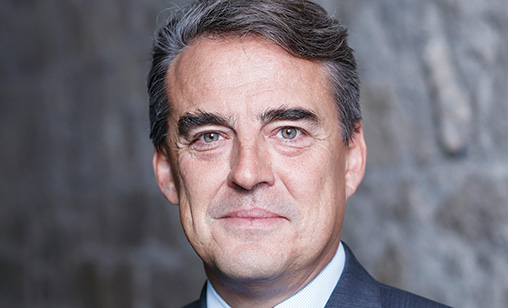 |
| Stronger partnerships IATA director general and CEO, Alexandre de Juniac |
 |
| Father of the B747 jumbo jet Joe Sutter |
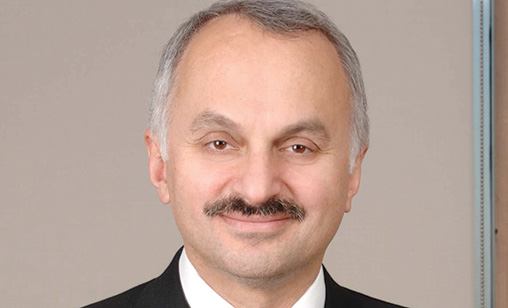 |
| Good timing Head of Turkish Aerospace Industries, Dr Temel Kotil |
In ever turbulent Taiwan, EVA Air’s board members were witnesses to soap opera in April when jealous siblings and their supporters ousted, in absentia, the airline’s chairman and qualified pilot, Chang Kuo-wei, as he flew a scheduled B777-300ER flight from Taipei to Singapore. Chang, the son of his father’s second marriage, inherited EVA’s chairmanship and majority ownership of the airline when the elder Chang died in January, aged 88. Unhappy with the decision, the three elder children lined up enough board directors to depose the 45-year-old favoured son. Former EVA Air boss, Steve Lin Pao-shui, agreed to return to his old job of running the privately owned carrier.
A few weeks later, the leadership of Malaysia Airlines Berhad (MAB) changed hands unexpectedly when Christoph Mueller, formerly of Aer Lingus and Lufthansa, resigned as the first western CEO of the airline “for personal reasons”. After he decided the job was not for him, his chief operating officer, Peter Bellew, a veteran of Irish aviation, including holding senior management positions at Ryanair, was chosen to succeed him. Bellew, who entertained executives at a recent annual regional airline gathering with a very respectable rendition of Karaoke favourite, “Stand By Me’, is doing a ball-tearer of a job in moving MAB towards its stated goal of profits in 2018.
In July, at the International Air Transport Association (IATA), Alexandre de Juniac succeeded Tony Tyler as the director general and CEO. “My main objective as IATA DG and CEO is to help the business of freedom succeed by adding value to the industry”, the former chairman of Air France/KLM said in an editorial in IATA’s Airlines International. “Innovation with speed must also be in the picture. In less than two decades our industry will double in size,” he said. “While addressing the problems of the day, the business of freedom will require us to plan and work together with our partners and with completely open minds, for a potentially very different future not that far from now!”
Business was definitely on the mind of Thai King Power tycoon, Vichai Srivaddhanaprabha, in 2016, who has had an exceptionally good year to date. As the owner of English football club, Leicester City, he raised the premier league trophy high after his underdog team, coached by Claudio Ranieri, won the 2016 English Premier League. The Thai duty free billionaire also was keeping busy in Thailand where he negotiated the purchase of 39% of Thai AirAsia for US$$225 million. The deal was completed in June.
Vichai made his billions from the exclusive duty free franchise, King Power, granted to him at Bangkok’s Suvarnabhumi International Airport by former prime minister Thaksin – pre the leader’s exile. The concession comes up for renewal in 2020 and is not expected to remain an exclusive arrangement.
In September, Boeing announced that the father of the B747, Joe Sutter, had died at age 95. Sutter led a team of 4,500 engineers who took just 29 months to design and build the first jumbo jet, the 20th century answer to the luxury ocean liner. Its launch in 1970 introduced affordable mass air travel to the world. As a teenager Sutter worked part-time at Boeing to help pay for his aeronautical engineering studies at the University of Washington. His time at the company was interrupted by his WW II service in the U.S. Navy and engineering studies at the navy’s aviation engineering school. He accepted an engineering position at Boeing where he decided, among other innovations, to put the engines beneath the wing “where they belonged” on the B737. He was the chief engineer of the Jumbo – the world’s first twin aisle aircraft – but also worked on the B707, B757 and the B767. He retired in 1986, but remained with Boeing as a consultant, where he had particularly strong relationships with Asia-Pacific airline customers.
In Hong Kong, HNA Group controlled full service carrier, Hong Kong Airlines, announced, also in September, that the airline’s executive vice president and air traffic control (ATC) expert, Wang Liya, would be the new president of the full service carrier, with immediate effect. Before he joined Hong Kong Airlines, Wang was director general of the Civil Aviation Administration of China’s Operations Management Centre. Other key positions he held in Mainland China air traffic management in the last three decades were director general of China’s Air Traffic Management Bureau, deputy director general of ATMB central and southern regional administration and membership of the International Civil Aviation Organisation’s Air Navigation Commission.
Former president, Zhang Kui, was made co-chairman of the airline. His fellow co-chairman is Mung Kin Keung.
A more controversial decision at the airline was the news that retired Hong Kong police commissioner, Tang King-shing, would work alongside Wang as the vice chairman and executive director of the 10-year-old carrier. A fluent English speaker, which many of Hong Kong Airlines leaders are not, Tang told Orient Aviation in November that his job is to oversee the development strategy of the carrier as well as its corporate governance, legal affairs, audits, security, safety and customer relations. Tang has never worked in aviation, but he served as head of the Kai Tak airport police division and also was commander for South Kowloon which had jurisdiction over the former airport.
Turkish Airlines CEO, aerospace engineer, Temel Kotil, resigned from the airline in October to head Turkish Aerospace Industries, which turned out to be a very good decision. Kotil and his successor, Bilal Eksi, had an uphill battle running the flag carrier in 2016. Tourism suffered an immediate hit when three suicide bombers attacked Istanbul’s Ataturk airport, killing 45 people and injuring more than 230, on June 28. On July 15, the government fended off a coup d’etat. As a result, overseas visitors, which are critical to Turkey’s economy, fell away as did yields at the airline.
In separate Orient Aviation cover stories this year, two of China’s new breed of private airline tycoons chronicled their rises from street hawkers to billionaire status in the years that the Mainland’s economy opened to the world and Chinese people took to flying with a vengeance. “If it were not for the great tide of reform and opening up, which awoke the entrepreneurial spirit hidden in our hearts, I might still be an honest fisherman like people in my father’s village,” Wang Junjin, chairman of Shanghai-headquartered Juneyao Airlines, told Orient Aviation.
Ruili Airlines chairman, Dong Lecheng came later to the airline business than Wang, setting up his carrier a little more than two years ago. “I like business. I like challenges. Eventually, I want to have three listed companies,” Dong told Orient Aviation in May. “My parents were farmers and did not have any resources so I opened a small roadside grocery store and took my chances.” The ruler of Ruili Airlines is Yunnan’s third richest man.
There were significant changes at the top at Boeing in the closing months of 2016 when the company named new leaders and launched its integrated Services Business. Boeing vice chairman and CEO of Boeing Commercial Airplanes, Ray Conner (61), is retiring and will be succeeded at the airplane division by former president and CEO of GE Aviation Services, Kevin McAllister (53). Conner will stay on as Boeing vice chairman into next year in an orderly transition of the airplane division’s top management.
Boeing chairman, president and CEO, Dennis Muilenburg, also announced that Boeing veteran, Stan Deal, would be head of the new Boeing Global Services unit. The division will provide “a broad portfolio of advanced services and incorporate the capabilities of various subsidiaries within the group, including Aviall and Jeppesen”, Boeing said.
Closer to home, Boeing’s vice president of sales for Northeast Asia, Ihssane Mounir, is to succeed John Wojick as the company’s sales and marketing leader. In his new role, Mounir will be responsible for the sales and marketing of all commercial airplanes and related services to airlines and leasing companies worldwide. Wojick will retire after 36 years outstanding years with Boeing that included assignments in engineering and all facets of commercial airplane sales and marketing, Conner said.
At Star Alliance, COO, Jeffrey Goh, will take over from Mark Schwab next month as the alliance’s CEO. Malaysian Goh was a legal academic and aviation lawyer before he joined Star from the International Air Transport Association in 2007. Full Asia-Pacific members of the Star Alliance, which is headquartered in Frankfurt, are Air China, Air India, Air New Zealand, All Nippon Airways, Asiana Airlines, EVA Air, Shenzhen Airlines, Singapore Airlines and Thai Airways International. Shanghai’s Juneyao Airlines has accepted the invitation to become the alliance’s first Connecting Partner.
Achievement of the year
| Landmark icao environment pact It was years in the making and involved hundreds of hours of often excruciating discussions, so it was with enormous relief that global aviation leaders could announce at the International Civil Aviation Organization’s (ICAO) 39th Assembly that a new global market-based measure (GMBM) to control CO2 emissions from international aviation had been agreed. The historic agreement gave aviation a place in environmental history as the first global industry to collectively act on the environment. ICAO’s Carbon Offsetting and Reduction Scheme for International Aviation (CORSIA) is designed to complement the basket of measures, such as technical and operational improvements and advances in alternative fuels, that the air transport community already pursues. Implementation will begin with a pilot phase, from 2021 through 2023, followed by a first phase - 2024 through 2026. These periods will be voluntary. From 2027 to 2035, all States must participate in the scheme. CORSIA’S acceptance was not the only breakthrough at the Montreal ICAO Assembly. Representatives agreed to fast-track a global aviation security plan with the goal of all nations working more closely to prevent security breaches and attacks. The commitment includes standardization of aviation security measures worldwide. ICAO secretary general, China’s Liu Fang, said the new plan “will help define the roles and responsibilities of all the agencies and lead to more progressive and co-ordinated aviation security enforcement”. A draft of the plan will be available in May next year. ICAO is moving speedily to resolve these issues – action it is hardly known for – and was a fitting postscript to another development, the changing of the guard at the International Air Transport Association (IATA), when retiring IATA boss and former Cathay Pacific Airways chief executive, Tony Tyler, was acknowledged for his five successful years fighting the airline corner with governments and regulators and for his total commitment to bringing CORSIA into being. |
For aircraft manufacturers it was a mixed 2016. Boeing and Airbus have bumper backlogs that will keep their assembly lines humming for years. In China, the COMAC-produced mid-size twin engine 168 seat C919 has an order book, all from Chinese airlines and aircraft lessors, for 573 of the type plus 333 options and Letters of Intent from 23 customers. At the Zhuhai Air Show in November, the company said it planned its launch flight in early 2017 and that its launch customer would be China Eastern Airlines. Multi-national aerospace companies also are investing millions in manufacturing and completion plants in the region, but largely in China and Singapore. In February, U.S. aircraft engine-maker, Pratt & Whitney, officially opened its first manufacturing plant in Singapore, a 16,000 square metre facility at Seletar Aerospace Park that produces fan blades and other essential components for the company’s new PurePower Geared Turbo Fan (GTF) engine family. It is expanding into high pressure turbine discs in the coming months. Pratt & Whitney has orders for more than 7,000 GTF engines. Leading Indian LCC, Indigo, has bought the engine for its A320neos that are in service with the Delhi-based carrier. In China, Airbus broke ground early in the year on its second Tianjin completion centre, this time for the A330, following the success of its A320 Final Assembly Line. In October, Boeing announced its first completion centre in China, for the B737, would be built on the island city of Zhoushan in Zhejiang province. It will be the first completion plant outside the U.S. for the company and will be run in partnership with the state-owned Commercial Aircraft Corporation of China (COMAC). Playing catch up to Airbus, the Boeing/COMAC joint venture was established in 2015. Green aircraft will be flown from the U.S. for interior outfitting, painting and delivery to Chinese airline clients. Airbus endured a period of setbacks during the year as cabin suppliers failed to meet the high standards of completion demanded by airline customers and problems emerged with GTF as the engines were proceeding to assembly on early model A350s. In November, Airbus CEO, Fabrice Bregier, told Orient Aviation at the maiden flight of the A350-1000 in Toulouse that issues of poorly constructed toilets to engine failures that had delayed deliveries of the new A320neo and the A350 had eased. |
| New LCC alliances connect passengers across brand barriers New budget airlines continued to start operations across the region, both in China and elsewhere, and the eight-member Asia-Pacific LCC Value Alliance was launched. Members are Cebu Pacific, its subsidiary Cebgo, Jeju Air, Nok Air, NokScoot, Scoot, Tigerair, Tigerair Australia and Vanilla Air. A smaller grouping, the U-FLY Alliance, was established early in the year with all-Chinese HNA Group airlines, HK Express, Lucky Air, Urumqi Air and West Air as members. |
Congratulations to Orient Aviation’s chief correspondent, Tom Ballantyne, who won the Australasian Aviation Press Club (AAPC) Technical Story of the Year award for his feature article, Airlines Ignore the Big Data bandwagon at their peril, published in the September 2016 edition of Orient Aviation. The award, sponsored by Rolls-Royce, was presented to Tom at the annual AAPC dinner in Sydney on November 25. |
TEREZA says:
May 25th 2024 12:02am